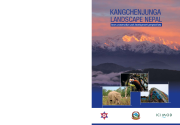Judgment of the Supreme Court regarding status of Zudpi lands in Maharashtra, 22/05/2025
<p>Judgment of the Supreme Court in the matter of In Re: Zudpi Jungle Lands.</p> <p>A batch of applications involved a peculiar issue concerning the situation prevailing in the six districts of eastern


